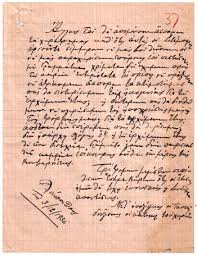
Royal Trust v Welfare Institution of Jews of Athens 2022 BCSC 1454 involved an application under S 86 Trustee act for directions and interpretation relating to a will that posed the following 4 issues:
1. if the proper construction of paragraph 4(b)(b) of the 1985 Will is that the contingent beneficiary was the President at the time that the 1985 Will was made (Mr. Kalavitsoglou), does the gift lapse due to the death of Mr. Kalavitsoglou in 2014, and the Trust property fall back into the residue of the estate?
2. is the proper construction of paragraph 4(b)(B) is a gift virtute officii to Estia or a gift to Mr. Keskinoglou, the current President of Estia, in his personal capacity?
3. if the gift was intended to be made to Mr. Keskinoglou virtute officii and is therefore impressed with a trust in favour of Estia, does the gift fail due to the non-recognition of trusts under Greek law?
4. if the gift fails on any of these grounds, does the Trust property fall back into the residue of the estate and be distributed to Ms. Conrad?
The court found that the intent of the testator was to make a gift to the charity and not the president of the organization personally.
The Law
Robson Estate (Re), 2006 BCSC 673 para. 11:
… the courts will make every effort to discover which beneficiary was intended by the deceased and to not allow misdescription, either imperfect or inaccurate, to defeat the deceased’s intent. This is especially so when the gift is to a charitable institution. If the description is sufficient to identify the intended beneficiary with reasonable certainty, that person should be the recipient.
The court had no hesitation in concluding that Ms. Georges’ intent was to make a gift to the charity, Estia. As noted earlier, whether the charity ultimately selected by Ms. Conrad or the one selected by Ms. Georges was to be the recipient, the trust property was clearly earmarked for charitable purposes.
There was no evidence that Ms. Georges even knew, let alone had any sort of relationship with, the individual who was the President of Estia at the time of the 1985 Will. Absent such evidence, it logically follows that it was the charity, not the person, who was the intended beneficiary.
This conclusion is only reinforced by the concept of virtute officii and/or the phrase “for the time being” as it appears in the 1985 Will.
In Lucey v. Catholic Orphanage of Prince Albert, [1951] S.C.R. 690, the will left a bequest to “Reverend William Bruck o.m.i. St. Patricks Orphanage of the City of Prince Albert …, absolutely”. Cartwright J., at 526, referred to the following passage in Halsbury’s Laws of England as an accurate statement of the law:
The mere description of a donee as the holder of an office is not of itself sufficient to raise the inference that the gift is for the benefit of the office and not of the holder personally, unless the context and circumstances show that the holder for the time being was intended. A gift, however, to a person either described as, or known to the testator as, the holder of an office, “or his successors,” or a gift to the holder of an office for the time being, is for the benefit of the office or of the association or body in which the office is held. [emphasis added]
In re Morton Estate, [1941] 1 W.W.R. 310 (BC SC), the testator left a bequest to be paid annually to “the officiating clergyman for the time being” of her Baptist church. Her intestate heirs argued that the gift was intended for individual donees personally, rather than to the church, and was therefore void pursuant to the rule against perpetuities. The Court disagreed and held (at 318) that the gift was intended for the church, not the individuals:
… it was to the office for the benefit of the said church for religious purposes in the strict sense and … it was a good charitable gift.




